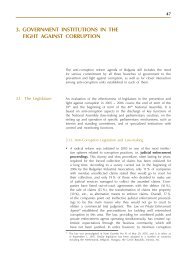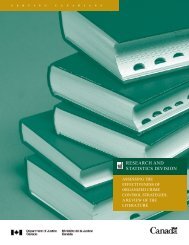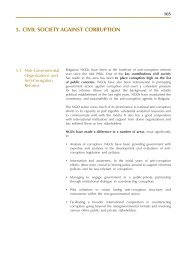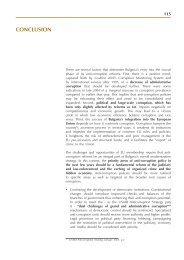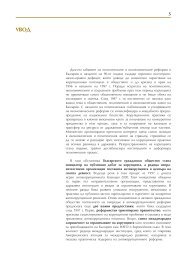National Threat Assessment 2008. Organised Crime - Politie
National Threat Assessment 2008. Organised Crime - Politie
National Threat Assessment 2008. Organised Crime - Politie
Create successful ePaper yourself
Turn your PDF publications into a flip-book with our unique Google optimized e-Paper software.
indications that skimming will increase dramatically in the next four years.<br />
The introduction of better protected cards and more modern payment<br />
equipment will limit the scale of the phenomenon and the losses incurred.<br />
4.7.7 Conclusion<br />
Skimming is a relatively rare offence, and the overall damage it inflicts on<br />
Dutch society is limited. The technological developments as regards card security<br />
and reading equipment in particular will prevent skimming from growing into<br />
a serious problem in the next four years.<br />
This is why skimming is qualified as no specific threat for the next four years.<br />
4.8 Handling stolen goods 60<br />
4.8.1 Introduction and scope<br />
The law distinguishes between three types of handling of stolen goods:<br />
knowingly handling stolen goods (Section 417bis of the Penal Code),<br />
deliberately handling stolen goods (Section 416 of the Penal Code) and<br />
habitually handling stolen goods (Section 417 of the Penal Code).<br />
Knowingly handling stolen goods means that someone buys something when<br />
he could have suspected that it was stolen. This suspicion is usually fed by the<br />
price, which is (far) below the market value. The maximum sentence for<br />
knowingly handling stolen goods is one year. Deliberately handling stolen goods<br />
is different from knowingly handling stolen goods in that the buyer ‘knew that<br />
the good was obtained by means of an offence’. The maximum sentence is four<br />
years. People ‘who deliberately handle stolen goods on a habitual basis’ are<br />
guilty of an aggravating circumstance. The maximum sentence is 6 years.<br />
The last two maximum sentences in particular show that the law considers<br />
the handling of stolen goods to be a serious offence.<br />
Handling of stolen goods is not limited to buying stolen goods. The ‘possession<br />
or transfer’ of stolen goods and money obtained from a criminal offence also<br />
fall under the provisions relating to the handling of stolen goods.<br />
60<br />
The subject ‘handling of stolen goods’ was not studied separately in a subproject. It was<br />
discussed (briefly) in the report on ‘supraregional property crime’, which was referred to as a<br />
source document in the introduction to this chapter.<br />
chapter 4 – Supraregional property crime<br />
175



